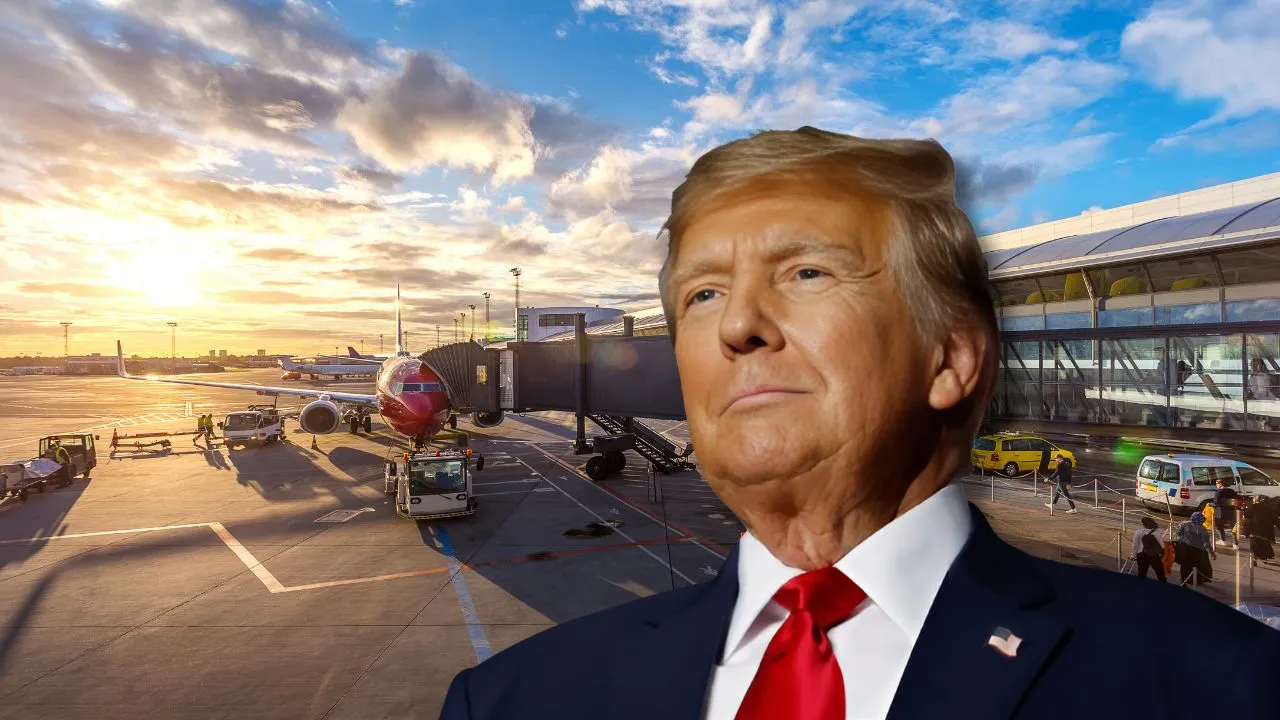The Trump administration’s directive to bring federal employees back to the office full-time is raising alarms among aviation security experts, who warn that the move could drive away skilled professionals and compromise national security.
Douglas Brittin, a former Transportation Security Administration (TSA) official, has expressed serious concerns about the potential impact of this mandate on air cargo security. In a letter to the House Homeland Security Committee, Brittin cautioned that the sudden phase-out of remote work without adequate planning could lead to a significant loss of institutional knowledge, making it harder for the TSA to recruit and retain specialized personnel.
Table of Contents
Concerns Over Security and Retention
Brittin emphasized that experienced professionals play a crucial role in managing and improving air cargo security programs. These include third-party canine inspections, security screening enhancements, and the adoption of advanced screening technologies at passenger checkpoints and cargo facilities.
“Losing experienced personnel during these important initiatives will jeopardize their success and, by extension, our national security,” Brittin wrote in his letter.
Aviation remains a prime target for terrorist attacks, as demonstrated by a recent security incident in Europe. Western intelligence agencies accused Russia’s military intelligence unit of attempting to smuggle booby-trapped incendiary devices onto DHL Express cargo planes last summer. The parcels ignited at DHL facilities in Germany and the UK, prompting concerns that the attempt was a test run for future attacks against U.S.-bound aircraft.
Brittin urged the House Homeland Security Committee to advocate for a six-month extension of the return-to-office mandate for TSA’s air cargo and canine inspection divisions. This would allow the agency to retain key personnel and ensure program continuity during this critical period.
Challenges in Implementation
President Trump recently signed an executive order ending remote work for federal employees, citing efficiency, accountability, and the need to improve oversight. However, many federal workers argue that telework arrangements have helped agencies attract top talent and maintain productivity.
Brittin pointed out that TSA’s recent headquarters relocation from Arlington, Virginia, to Springfield, Virginia, poses an additional challenge. The new facility does not have the capacity to accommodate the influx of employees currently working remotely, making the transition to full in-office work logistically difficult.
Suspension of Homeland Security Advisory Committees
Further complicating matters, the Department of Homeland Security (DHS) has recently suspended key federal advisory committees that focus on aviation and cross-border freight security. The Aviation Security Advisory Committee (ASAC) and the Commercial Operations Advisory Committee (COAC) were effectively disbanded under a directive issued by former Acting DHS Secretary Benjamine Huffman.
ASAC, established by Congress in 1988 following the Pan Am Flight 103 bombing, has played a vital role in advising the government on aviation security. Industry leaders warn that dissolving these committees at such a crucial time will weaken collaboration between government agencies and private-sector stakeholders, potentially leaving vulnerabilities unaddressed.
“The decision to disband ASAC removes a vital platform for collaboration between government and industry, undermining efforts to safeguard the flying public and protect national commerce,” said the Airforwarders Association in a statement.
Marianne Rowden, CEO of the E-Merchants Trade Council, suggested that the administration may be reevaluating the role of advisory committees to align with new priorities. However, industry experts argue that such a move could slow progress on critical security initiatives.
The Way Forward
With vacancies in key leadership positions at TSA—including the departure of the Air Cargo Division director and the recent firing of TSA Administrator David Pekoske—experts warn that the agency is facing a critical period of instability. The absence of advisory committees and experienced personnel could further undermine national security efforts.
Industry stakeholders are calling on the Trump administration to reconsider the return-to-office deadline and reinstate essential advisory committees to maintain the integrity of the nation’s aviation security framework.
As the debate over remote work continues, the coming months will be crucial in determining whether the TSA can maintain its workforce and safeguard the aviation industry against evolving threats.

